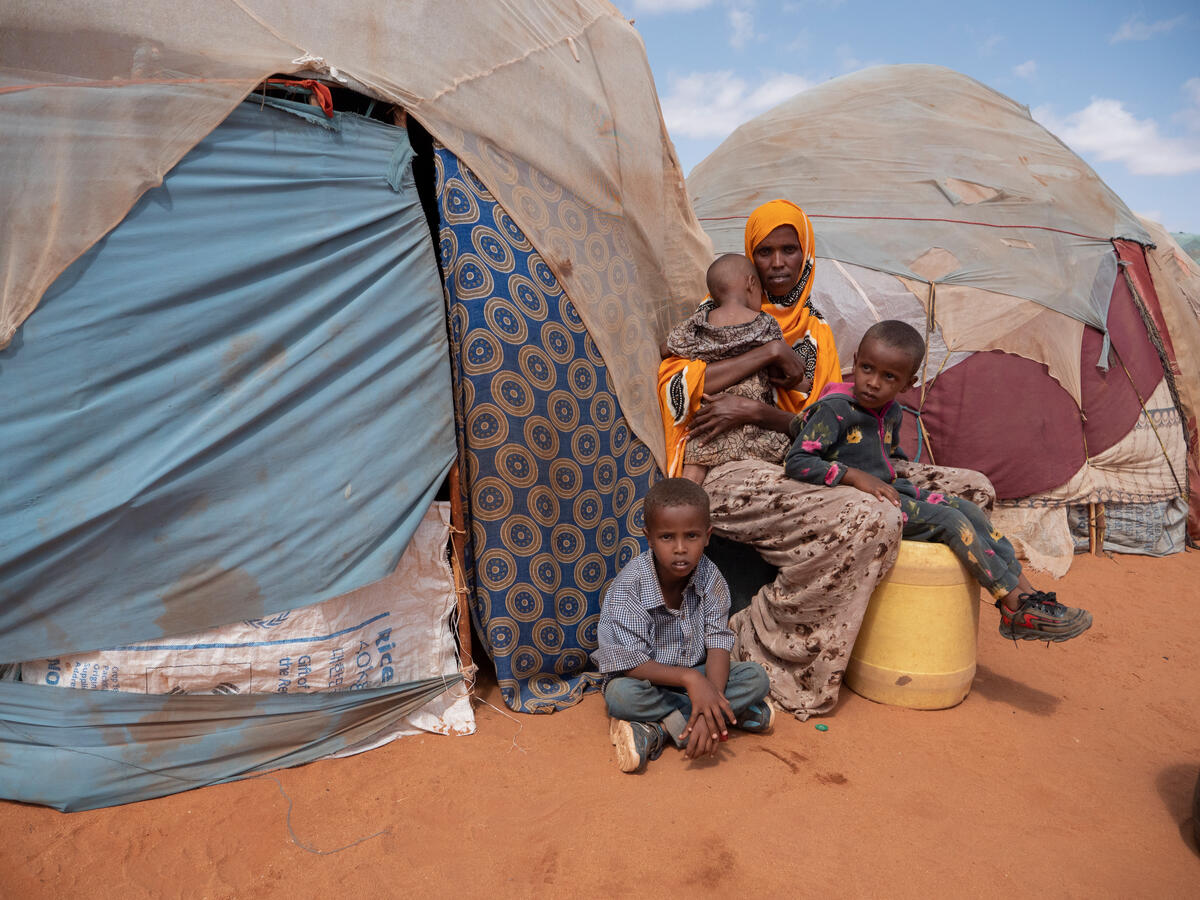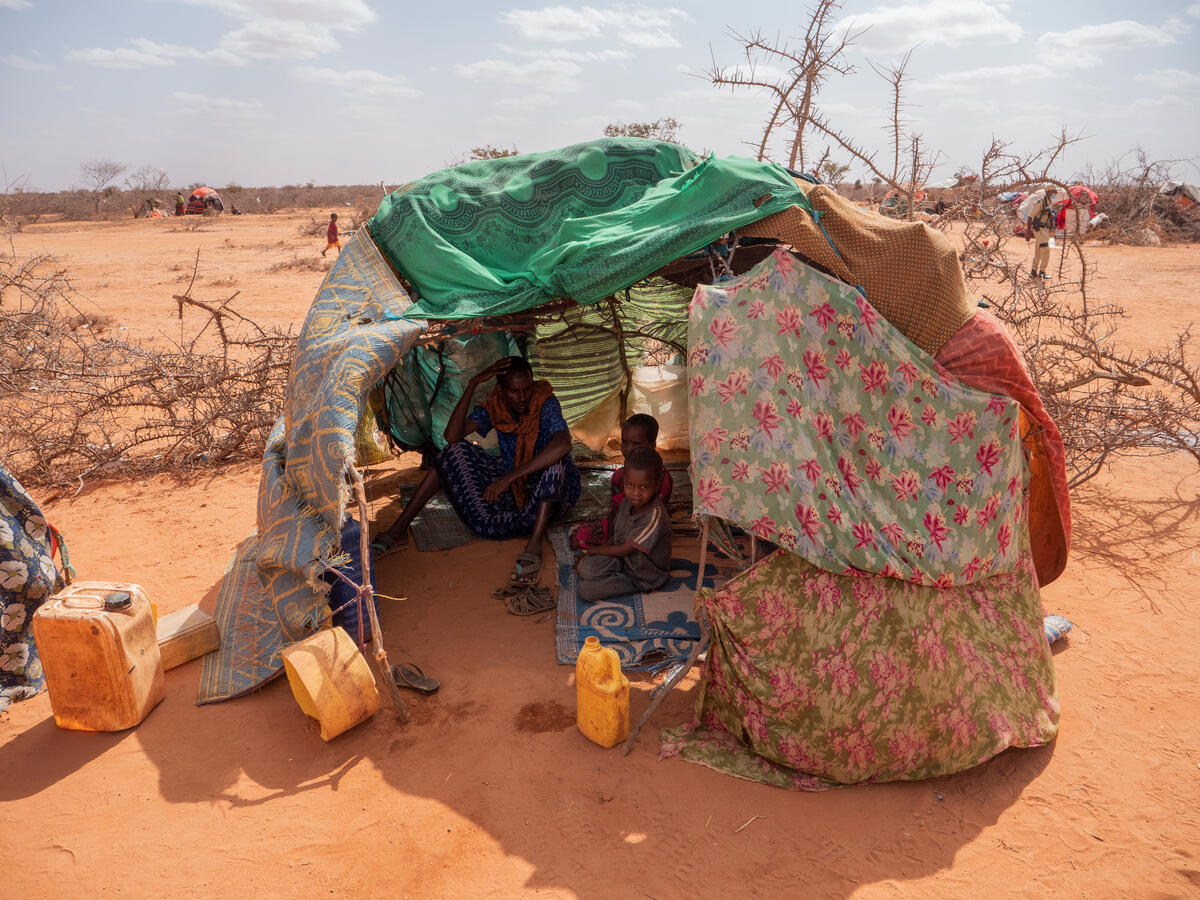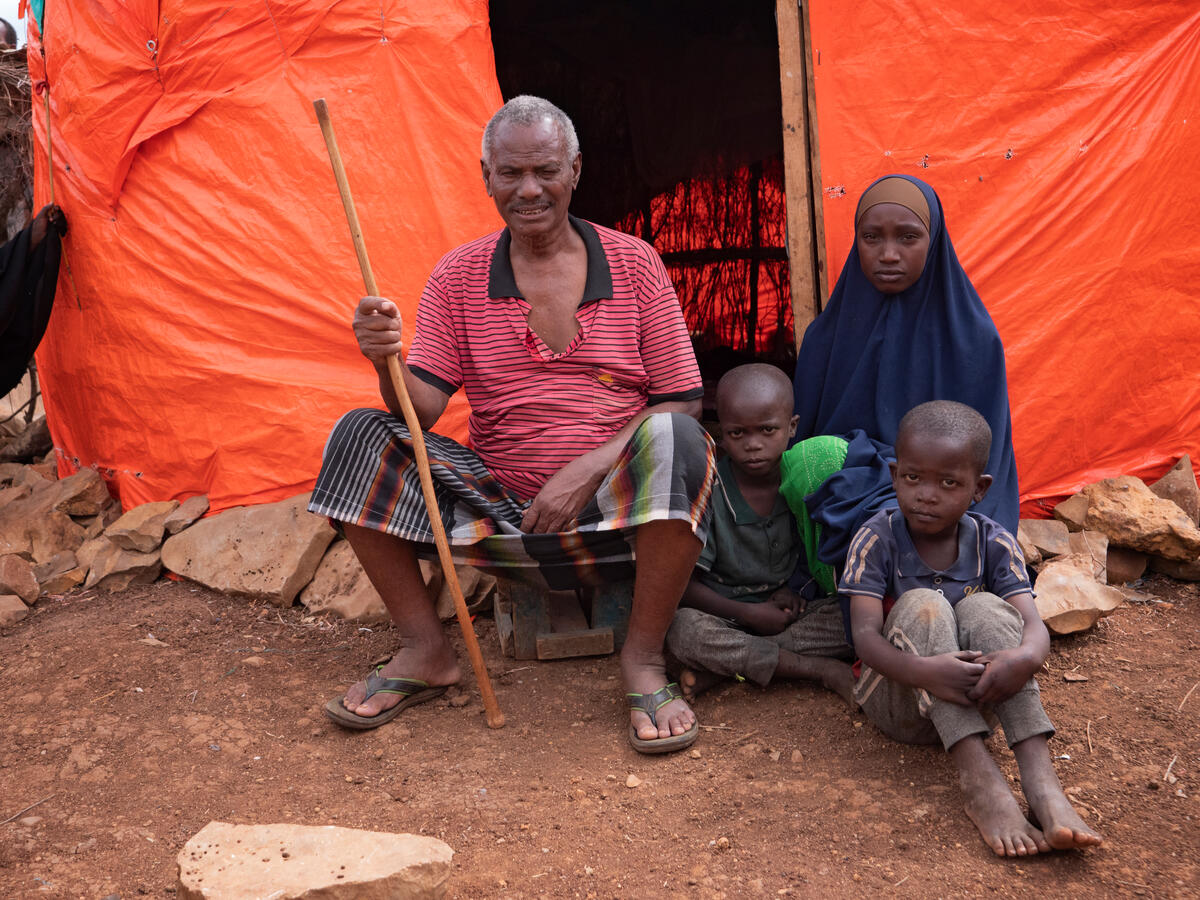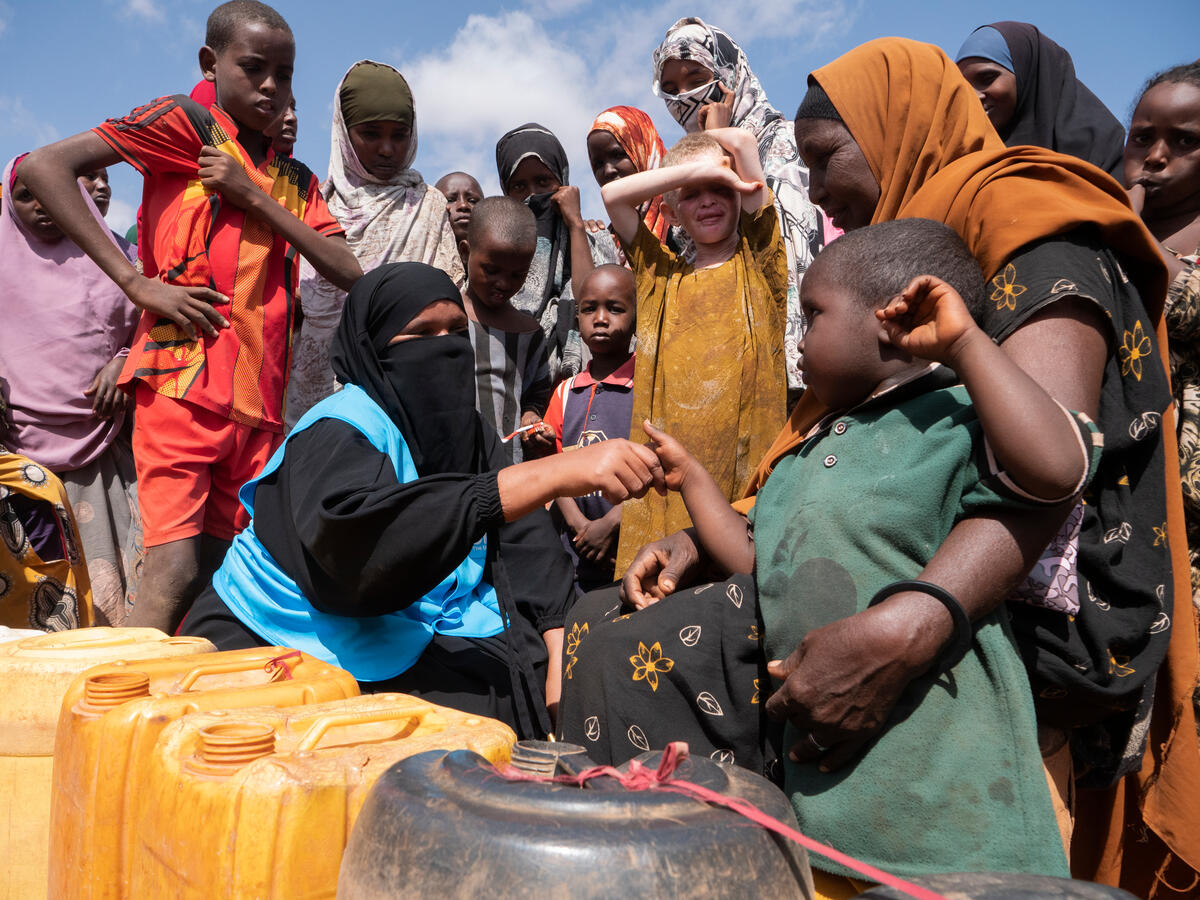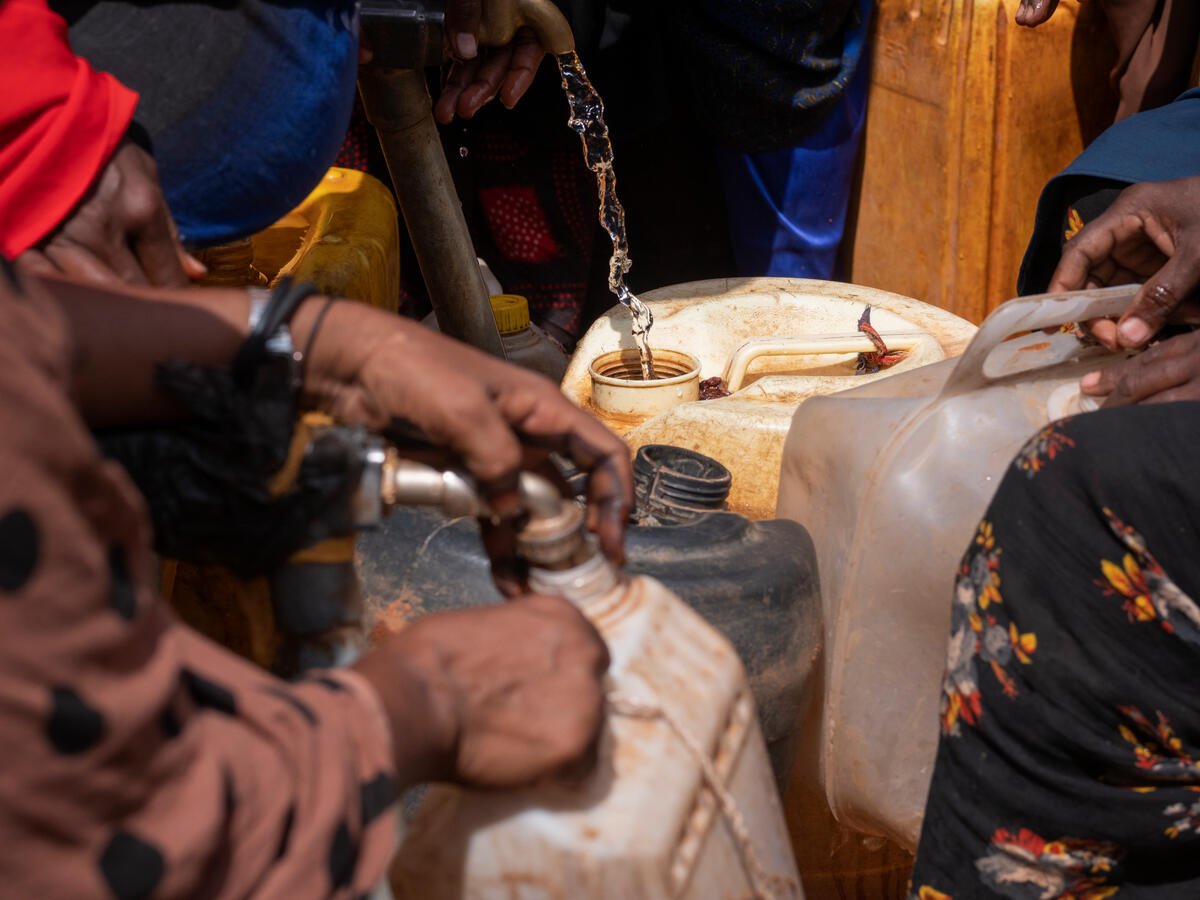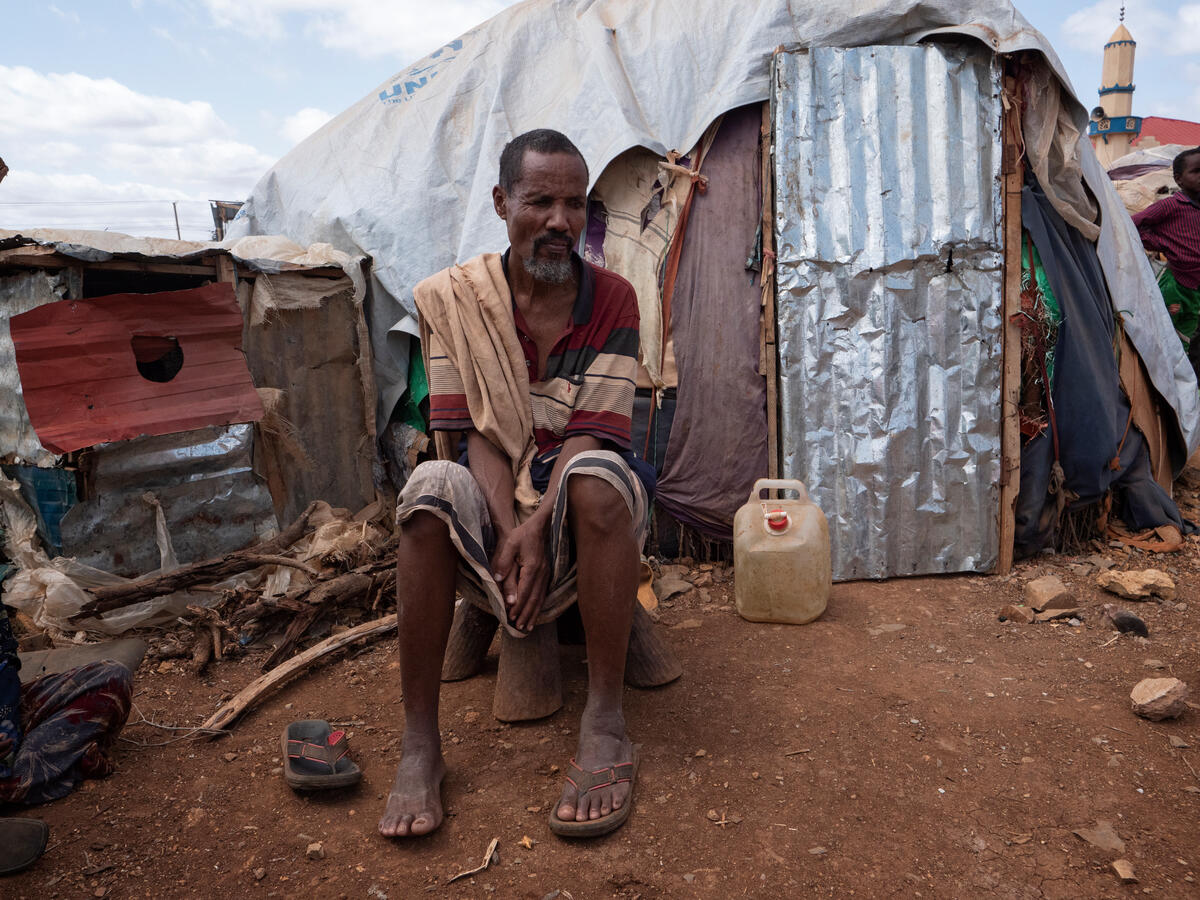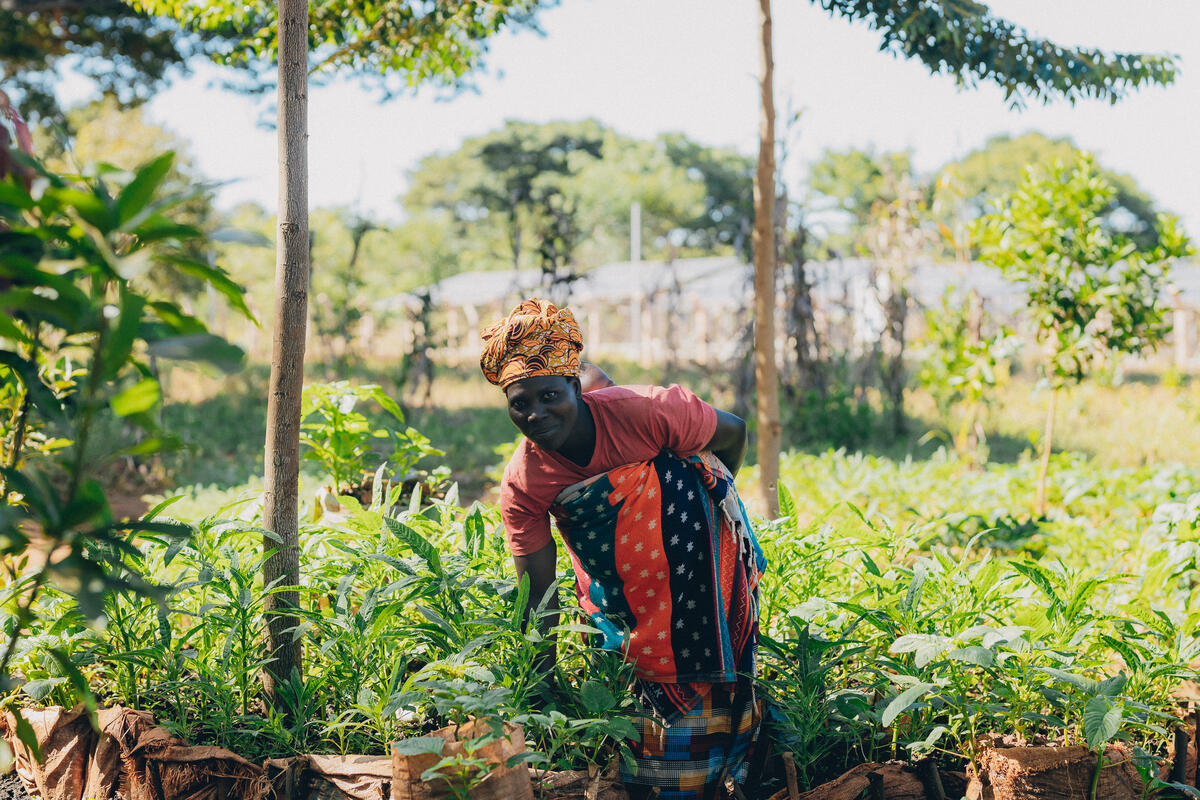Somalis abandon their homes in search of food, water and aid as drought deepens
First, the rains failed, then Al-Shabab, an armed group that controls large swathes of south-central Somalia, started to impose hefty taxes on local farmers like Fathi Mohamed Ali.
With the river dry, no food for the children and no money to pay the tax, the 35-year-old mother of seven fled her home in Lower Shabelle where she and her husband had once grown fruits and vegetables.
“Some people were killed [by Al-Shabab] and others arrested, including my own mother,” she said. “We had to escape for our lives, I could not even bring all my children. I left four of them with their grandmother. I just took the youngest three kids with me.”
Sitting on an empty jerry can in front of her makeshift shelter, cobbled together from tree branches and pieces of old clothes, she described the perilous 15-day journey she took to reach a camp for internally displaced people in Dolow, southern Somalia.
“It was extremely difficult,” she said. “We put the kids on donkeys and the adults walked for miles on end. Some of the people we came with lost their children along the way.”
"Food is our priority. We can think of education and other things when we get food."
Fathi and her husband and children survived the ordeal and joined thousands of other displaced families living in crowded settlements set up by the local authority on the outskirts of Dolow. The site she settled in has no toilets and only one tap.
“We came to an empty land with no shelter, and we had nothing in our possession as we left everything behind,” she said. “Food is our priority. We can think of education and other things when we get food, and a roof over our heads.”
Somalia, like much of the Horn of Africa, is facing its worst drought in 40 years. Following the failure of four successive rainy seasons more than 7 million of the country’s 15 million people are experiencing severe hunger. Experts warn that the next rainy season between October and December will also likely fail, pushing several parts of the country into famine before the end of the year, unless aid efforts are urgently ramped up.
Hundreds of thousands of Somalis have abandoned their homes and embarked on perilous journeys in search of food, water and humanitarian assistance. Since the drought started in January last year, over 1 million people have been forced from their homes, including 857,000 so far this year. A further 366,000 have fled due to conflict and insecurity.
Droughts are not uncommon in Somalia, which is ranked the second most vulnerable country to climate change in the world. There have been recurring dry spells, interspersed with flooding, over the last decade, including a devastating famine in 2011that killed over 250,000 people. Nomadic pastoralists and farming communities have little time to recover from one disaster before another strikes.
Among those that died in 2011 were four of Issack Hassan’s children. To save the rest of the family they went to the capital, Mogadishu, returning home a year later to restart their lives. But the rains continued to fail, and the few animals Isaack had left died due to the current drought.
“I lost 40 cows and 30 goats,” said the 82-year-old man from Diinsoor town in Somalia’s southwestern Bay region. “Both our crops and livestock were decimated. The animals died of hunger and the farms dried up due to lack of water.”
He fled again in April, but his wife died soon after they reached a camp in Baidoa city.
Hashim Abdirashid, a Protection Associate with UNHCR, the UN Refugee Agency, based in Baidoa, said people often arrived at the camps with nothing. “UNHCR is on the ground providing life-saving humanitarian assistance such as emergency shelter kits, plastic sheets, blankets, kitchen sets and hygiene materials, but we have limited resources to provide large-scale support to all affected communities.
“We are now targeting the most vulnerable, including those with protection needs such as women and the elderly.”
In June, UNHCR appealed for US$9.5 million to help displaced communities affected by the drought in Somalia. So far, only US$2.8 million of that amount has been received and more funding is urgently needed in the coming weeks to save lives and, in the longer term, to help people adapt to the climate crisis and recover their livelihoods.
“Somalia is on the verge of famine; the ripple effect of the Ukraine conflict and the economic impact of the pandemic is making the situation even more dire. We urgently need funds to continue saving lives before the situation gets out of hand,” said Hashim.
In a country where pastoralism and farming sustains over half the population, the loss of some 3 million livestock from hunger and lack of water is devastating for families.
"We have never seen this kind of drought before."
In one camp for internally displaced people in Dolow, carcasses of animals and bones are strewn around between temporary shelters.
“The drought has killed all these animals,” said Osman Ibrahim Mohamed, 70. “The carcasses you see are people’s livelihoods.”
“This dead cow was a lifeline to this family here,” he added, pointing to a shelter nearby. “It is a terrible situation that forced us to flee.”
Osman left his home in Middle Jubba region with his 13 children after losing all his livestock.
“We have never seen this kind of drought before,” he said. “I have witnessed four droughts, but I have never seen anything like this.”
Until more help arrives, Fathi makes her one jerry can of water last all day and cooks only once a day for her children. “The best of us cooks one meal a day. There are people who stay hungry for three to four days [because] they have nothing to cook,” she said. “There are children who died of hunger and diarrhoea recently.”
“We need support with everything,” she added. “The most urgent being food, water and toilets.”



